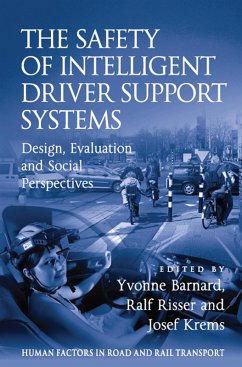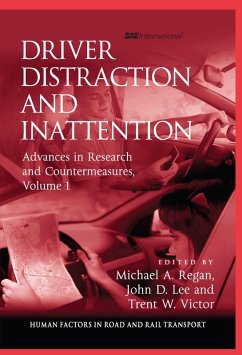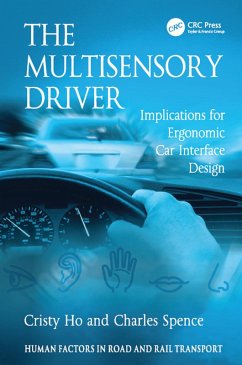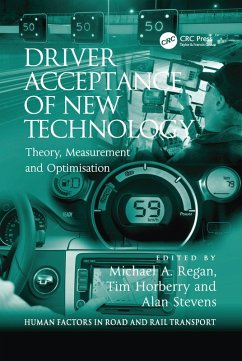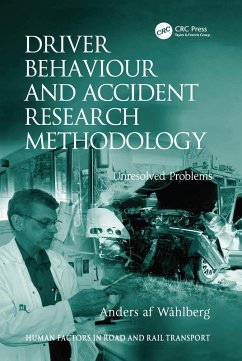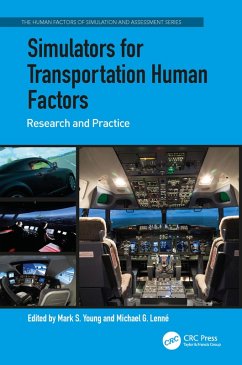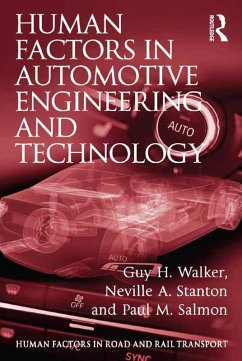
Driver Distraction and Inattention (eBook, PDF)
Advances in Research and Countermeasures, Volume 1
Redaktion: Regan, Michael A.

PAYBACK Punkte
29 °P sammeln!
It is estimated that, in the United States, around 20 percent of all Police-reported road crashes involve driver distraction as a contributing factor. This figure increases if other forms of inattention are considered. Evidence (reviewed in this volume) suggests that the situation is similar in other countries and that driver distraction and inattention are even more dangerous as contributing factors in crashes than drug and alcohol intoxication. Having a solid evidence-base from which to develop injury countermeasures is a cornerstone of road-safety management. This book adds to the accumulat...
It is estimated that, in the United States, around 20 percent of all Police-reported road crashes involve driver distraction as a contributing factor. This figure increases if other forms of inattention are considered. Evidence (reviewed in this volume) suggests that the situation is similar in other countries and that driver distraction and inattention are even more dangerous as contributing factors in crashes than drug and alcohol intoxication. Having a solid evidence-base from which to develop injury countermeasures is a cornerstone of road-safety management. This book adds to the accumulating evidence-base on driver distraction and inattention. With 24 chapters by 52 authors from more than 10 countries, it provides important new perspectives on the definition and meaning of driver distraction and inattention, the mechanisms that characterize them, the measurement of their effects, strategies for mitigating their effects, and recommendations for further research. The goal of this book is to inspire further research and countermeasure development to prevent and mitigate the potentially adverse effects of driver distraction and driver inattention, and, in doing so, to save lives.
Dieser Download kann aus rechtlichen Gründen nur mit Rechnungsadresse in A, B, BG, CY, CZ, D, DK, EW, E, FIN, F, GR, HR, H, IRL, I, LT, L, LR, M, NL, PL, P, R, S, SLO, SK ausgeliefert werden.





